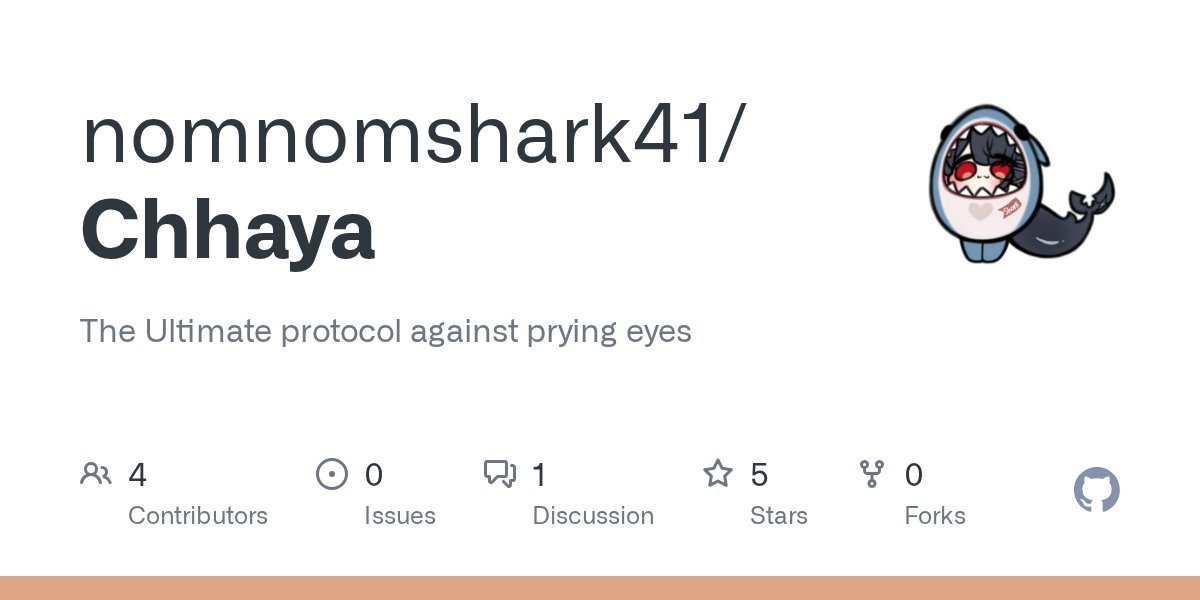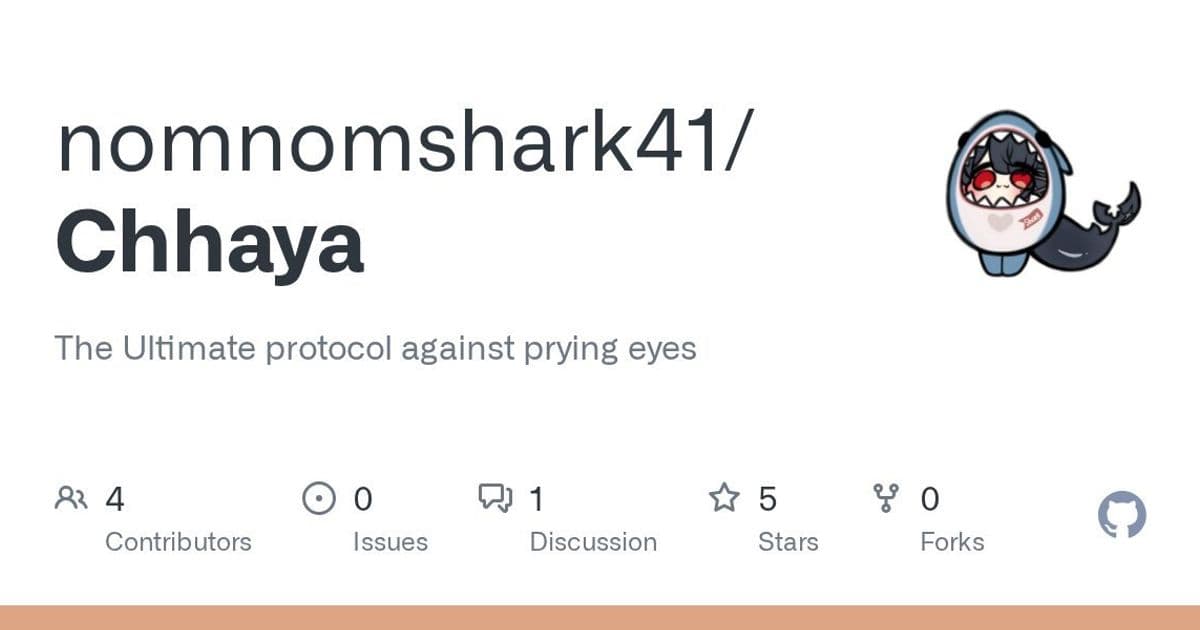Chhaya emerges as a fully peer-to-peer, serverless messaging protocol built in async Rust, combining libp2p networking with military-grade cryptography to guarantee confidentiality, integrity, and availability without centralized control. Its architecture features verifiable key transparency, hardened secret management, and modular design for auditable security—offering developers a blueprint for truly decentralized communication. Currently in active development under AGPLv3, Chhaya invites cont

In an era of escalating surveillance and platform vulnerabilities, the quest for genuinely decentralized communication tools has intensified. Enter Chhaya—an open-source, serverless messaging protocol crafted in asynchronous Rust that eliminates trusted third parties entirely. By weaving together battle-tested cryptography with advanced peer-to-peer networking, Chhaya isn't just another messaging experiment; it's a meticulously engineered response to the inherent risks of centralized infrastructure. For developers and security practitioners, this project represents a tangible step toward reclaiming digital sovereignty.
Why Chhaya Matters: Beyond Encryption
Traditional secure messengers often rely on central servers for key management or message routing, creating single points of failure and metadata exposure. Chhaya sidesteps these pitfalls through its pure P2P architecture. Powered by libp2p, it leverages QUIC transports with Noise handshakes, Kademlia DHT for discovery, gossipsub for message propagation, and relay v2 for NAT traversal—all without servers. The result? A network where participants communicate directly, ensuring no entity can surveil or censor conversations.
Security extends beyond transport with Chhaya’s cryptographic core:
- End-to-End Encryption: AES-256-GCM for symmetric confidentiality, paired with ML-KEM-1024 (post-quantum) and X25519 for key exchange.
- Forward Secrecy: A Double Ratchet protocol ensures past messages remain secure even if keys are compromised.
- Verifiable Key Transparency: VKD/CONIKS-style proofs, cross-verified via BLS quorum co-signatures, prevent spoofing and equivocation.
- Metadata Protection: Sealed-sender envelopes obscure sender identities, while deterministic HKDF-n12 nonce derivation thwarts replay attacks.
"All network or directory inputs are adversarial until proven otherwise," notes the project’s documentation. This zero-trust ethos permeates Chhaya’s design—every external data source undergoes rigorous validation before processing.
Architectural Rigor: Modularity for Security
Chhaya’s codebase is partitioned into discrete, auditable modules, minimizing attack surfaces:
p2p: Manages swarm orchestration and transport negotiation.vkd: Handles verifiable key-directory proofs, treating all responses as untrusted until cryptographic validation.logstore: Secures append-only storage for ratchets and delivery receipts.safety: Enforces zeroization of secrets, constant-time comparisons, and side-channel resistance.
This compartmentalization allows targeted testing and formal verification. For instance, fuzzing targets (via cargo-fuzz) rigorously stress-test parsers, while dependency hygiene is enforced through cargo deny and cargo audit.
Getting Started: Building Trust, Line by Line
Developers can dive into Chhaya’s codebase with:
cargo build # Compiles with RUSTFLAGS="-D warnings" to forbid unsafe code
cargo test --all # Runs unit, integration, and property tests
The project mandates a security-first development culture: public APIs are minimal and async-compatible (tokio), logs avoid sensitive data, and contributions must preserve end-to-end guarantees. As one maintainer emphasizes:
"Do not weaken cryptographic flows or nonce derivations. Explicit validation over unwrap or expect—always."
The Road Ahead: A Call to Arms for Privacy Engineers
Chhaya is under active development, with APIs and protocols still evolving. Its AGPLv3 licensing ensures openness, while issues tagged good-first-issue welcome community involvement. For engineers, this project isn’t just about messaging—it’s a testbed for decentralized trust models that could reshape everything from IoT to federated AI. As surveillance capitalism tightens its grip, tools like Chhaya offer more than privacy; they forge infrastructure resistant to coercion.
Source: GitHub Repository

Comments
Please log in or register to join the discussion